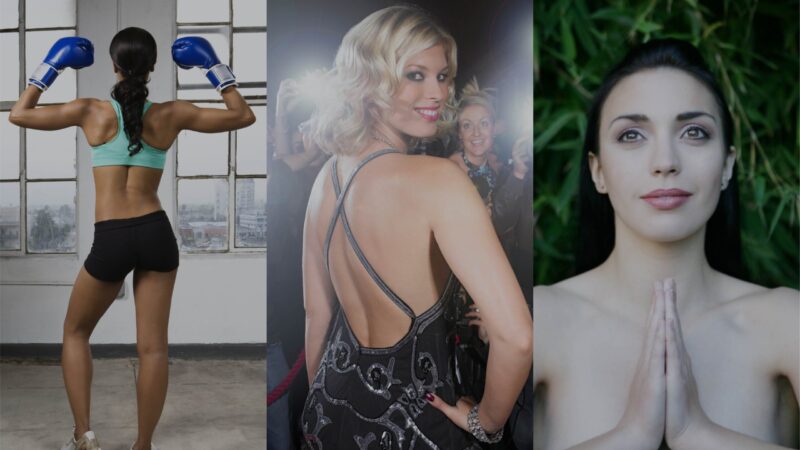Cosmetic products are an essential part of most women’s daily lives (and increasingly many men’s too) with a significant amount of time devoted to beauty rituals. This is something that TapestryWorks have studied in many commercial projects. We are also happy to have been involved in academic research on the topic in collaboration with the Decision, Environmental and Organizational Neuroscience (DEON) Lab at Nanyang Technological University in Singapore and Nova School of Business and Economics in Portugal.
The studies investigated consumption of cosmetic products through the lens of implicit beliefs and the influence of social pressure. Across three separate studies we collected attitudinal and behavioural data on beauty and then conducted experiments to confirm findings from the survey data by inducing and manipulating implicit beliefs and social pressure.
What are implicit beliefs?
People assess traits such as personality, intelligence, social skills and beauty in themselves and in others. One factor in such assessments is underlying (implicit) beliefs in the degree to which such traits can be changed or are fixed. Implicit beliefs can be defined as a person’s beliefs that such a trait is fixed (‘entity theory’) or can be changed (‘incremental theory’).
These theories are based on work by Carol Dweck and others, who have looked at their influence on perceptions of race, intelligence, sexuality and gender roles (as popularized in her book Mindset). What are the different implications of an entity versus an incremental theory (popularly called fixed and growth mindsets)?
Thinking about intelligence, people who hold an entity (fixed) mindset focus on performance goals (i.e., they want a good academic performance to look smart). People who hold an incremental (growth) mindset focus on learning goals and would be more likely to take difficult courses at school or college in order to learn.
Given the importance of beauty in how we see ourselves and other people, especially in shaping personal and professional success, it seems reasonable to apply such theories to beauty although little empirical work has focused on this before now.
The role of social pressure
All societies have social norms, reflecting the way in which we are influenced by the expectations of other people including family, friends, peers and, more broadly, by society. Women are often judged, much more often than men, by their physical and facial appearance. In today’s world, Instagram and other social apps show the importance of others’ judgements on a woman’s physical appearance seen in the amount of time and effort that is put into optimizing shared images.
Social feedback has been shown to influence individual behaviours such as dieting and less healthy weight control methods, disordered eating, and attitudes towards cosmetic surgery. Intuitively, beauty would seem to be a domain where people are particularly susceptible to social judgements. Similarly, such pressure would seem likely to lead to increased cosmetic consumption.
What is the relationship between implicit theories, social pressure, and cosmetic consumption?
Implicit beliefs might potentially have a direct impact on cosmetic consumption. For example, if a woman believes that her beauty is fixed that could reduce motivation to make an effort to change appearance, while if she believes that her beauty is malleable that could be motivating.\
Implicit beliefs might also have an indirect impact on cosmetic consumption by changing the perception and interpretation of social pressure (especially in social contexts). Across three studies we explored the relationship between the three using survey data and experimental manipulations. I will discuss each in turn.
First study: consumer surveys
We surveyed more than 5,000 women across five Asian countries (Indonesia, Japan, Malaysia, South Korea, and Thailand) and two Western countries (Australia, United Kingdom). The sample covered women aged from 18 to 55 years and were nationally representative of each country.
Data analysis revealed a similar pattern of relationships across all the countries surveyed, except women in Indonesia and Malaysia who were regular wearers of hijabs. We measured implicit theories with three separate statements which were included in a set of attitudinal questions. For example, “You have a certain amount of beauty and you cannot really do much to change it” and “You can apply make-up or opt for cosmetic surgery, but you cannot really change your basic beauty”.
Similarly, we measured perceived pressure to change with three statements focusing on separate sources of pressure, “I feel pressure to change the way I look from my husband/friends/family”. Cosmetic consumption was based on stated frequency of consumption of seven cosmetic products (foundation, eyeliner, mascara, concealer, eye shadow, blush, lipstick).
For each individual country, there was a significant relationship between implicit theories and perceived pressure and between perceived pressure and cosmetic consumption. However, at an individual country level there was no significant direct relationship between implicit theories and cosmetic consumption.
In summary, when a woman believes that beauty is fixed, she is more prone to social pressure to change her appearance and resorts to using more beauty products. This pattern is consistent across all seven countries.
Second study: inducing implicit theories
Although the first study established a correlational relationship between implicit theories, perceived pressure, and cosmetic consumption, this is not sufficient to establish a causal relationship. The second study used a priming method to activate a “fixed” or “malleable” mindset and improved some of the measures including the addition of measures of self-confidence and perceived importance of beauty.
We recruited 200 female participants in the US (via Amazon MTurk) and had them read a fictitious Time article and complete a “Reading Comprehension Task”. The article had two versions, with one discussing the view that beauty is fixed and the other discussing the view that beauty is malleable. There was no mention of cosmetic consumption in the article.
Participants then completed a “Cosmetic Consumption Survey” indicating how often they would use a series of cosmetic products in the next six months, and were then asked about perceived pressure, self-confidence, and perceived importance of being beautiful. Finally, we conducted a manipulation check to test the manipulation of implicit beliefs (which was successful).
The results of the study confirm a potential causal role of implicit beliefs in heightening perceptions of social pressure and (indirectly) intended consumption of cosmetic products.
Third study: manipulation of perceived pressure
In this final study, we looked at the role of perceived pressure by framing the setting to be social or private. If perceived pressure plays a mediating role we would expect to see the impact of implicit beliefs in the social condition but not in the private condition.
393 US women were recruited via Amazon MTurk to one of four condition reflecting differences in implicit beliefs (fixed vs malleable) and context (social vs private). The manipulation of context was achieved in this experiment by asking participants to imagine themselves in a scenario in which they “just took a selfie”. In the social condition, they were told you “want to post it on their Facebook page”, whereas in the private condition, they were told that you “want to keep the picture for themselves”.
The results showed that participants in the social condition showed greater perceived pressure than participants in the private condition, confirming that the manipulation worked. They also showed no significant effect of implicit beliefs, but a significant interaction between implicit beliefs and context. A belief in fixed beauty increased anticipated cosmetic consumption only in the social context condition and not in a private context.
Overall conclusions and implications
Collectively, these studies demonstrate the relationship between implicit theories of human beauty and perceived pressure and cosmetic consumption. The survey results were consistent across seven Asian and Western countries, showing that the more a woman believes that beauty is fixed and unchangeable, the more she perceives social pressure to change her looks, and that this leads to increased consumption of cosmetic products.
The survey data was further supported by experimental manipulations of entity beliefs and perceived pressure with women in an eighth country (USA). The survey data also shows that such implicit beliefs can also influence other attitudes and behaviours such as preference for natural products and media consumption (not the focus of this paper). These results have implications for advertising. For example, the belief that beauty is fixed might make women more receptive to natural beauty values while the belief that beauty is malleable might make them more receptive to more transformative values.
Beauty is socially dependent, with implications for responsible marketing and also for sustainable consumption. Other research on entity theories shows that people who believe a characteristic (intelligence or beauty) is fixed have different goals than those who believe that characteristic can be changed. They are more focused on performance and positive feedback, whereas those who believe these characteristics are malleable are more focused on enhancement (and are less susceptible to negative feedback).
[Thank you to Natalie Faust, Ying-yi Hong and George Christopoulos who did all the hard work in completing the additional studies and analysis for this paper. You can find the published paper online here, and also other articles based on this work published by WARC, NTU and Tapestry Works here and here.]




